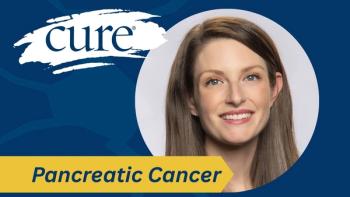
Hoping For a Better Funded Future of Pancreatic Cancer Research
With the high profile deaths of Alex Trebek and Justice Ruth Bader Ginsburg from pancreatic cancer, a survivor ponders, and hopes for, a better future for the state of pancreatic cancer research.
I hope for a future where pancreatic cancer will be found and treated early. One where the survival rate will be better than a meager five percent. We are not there yet. We can do better.
The recent deaths of
Cancer, any cancer, makes people ponder their future. Pancreatic cancer makes someone wonder if they have one. Almost always found too late to effectively treat it, leaving the survival rate pitiful. Its first symptoms are often back or belly pain, or worse, turning yellow in my case. My doctor later told me had my tumor not blocked my bile duct driving me to the ER there was little chance I would have made it.
Each time I read of another person lost to this silent killer I wonder when will more research dollars be made available so we can put an end to this? Much like all medical puzzles this too is solvable. But it will take more funding to get the top medical minds working on it. Sadly, it feels like year over year little progress has been made. Its grim survival stats remain well let's say grim.
This year alone, the American Cancer Society estimates over 57,000 people will get told they have pancreatic cancer. Knowing how few of them will make it should jolt all of us awake. Even better, it should spur those who allocate research dollars to dig a little deeper and make more money available to develop diagnostic tools to find it earlier along with better treatments.
The current course of treatment for pancreatic cancer involves a Whipple Procedure, a barbaric technique developed in 1935 by Allen Whipple which involves removing the top third of the pancreas and, depending on the spread of the cancer perhaps more. With our pancreases buried deep within us, my surgeon compared it to open-heart surgery, and he wasn’t far off. Worse, only one in five people can have a Whipple. Without one, death is certain. Even with one, the numbers are bleak. Few see two years, and most don’t see five. Many have little if no time to say much more than goodbye to their families.
We need to do better and can do much better.
I hope for a future where pancreatic cancer is found early enough to treat before it metastasizes into a certain death sentence. One of the reasons Justice Ginsburg survived for 11 years is her pancreatic tumor was found earlier than most. Whereas, Trebek’s was found far too late.
I hope for a future where pancreatic cancer’s name alone no longer strikes panic. Few want to hear the C-word. No one wants to hear the word pancreatic before the C-word.
One of the reasons I decided to go public about my private terror has been to increase awareness about how lethal pancreatic cancer is and make a plea for more funding to beat it.
Four months before his death, on March 13, 2008, Randy Pausch of The Last Lecture fame just out of the hospital testified in front of Congress pleading for more funding to fight pancreatic cancer. I hope to follow his example by also acting as a loud voice for more funding.
We must do better.
For more news on cancer updates, research and education, don’t forget to




